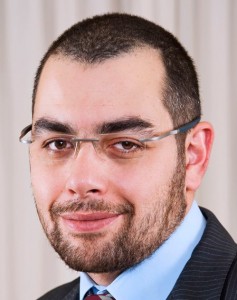
As 30 June approaches, debates and speculations are already running high. Some are experiencing an adrenaline rush, as they brace for the second wave of the revolution. However, some are playing down the expected outcome while others are skeptical and waiting to see how the events will turn before weighing in with their opinion. One thing is true though; this will not be a movement with the same magnitude as 25 January 2011. Planned protests on 30 June are likely to fall short of reinventing the revolution wheel.
You have been weighed!
The Muslim Brotherhood seems to know the end of the rope. They have entered several political scrimmages and while not necessarily escaping unscathed, they were able to diffuse the situations and hold on long enough until the dust settled. If you walk down memory lane and recount the colossal missteps starting from President Mohamed Morsi’s attempt to reinstate the dissolved parliament, to the constitutional declaration and the formation of the Constituent Assembly in charge of drafting the new constitution, you will see an emerging trend. If you sit around and do nothing long enough, the opposition will fizzle. Heck, 25 January itself almost fizzled after the second emotional speech of former president Hosni Mubarak. Save the infamous Camel Battle, this all could have been history. This tested and proven formula has paid dividends in events in Port Said, for instance. At the moment when people thought that the Canal cities are erupting, the president imposed a highly symbolic curfew and waited until people ran out of steam. In short, we have been weighed, we have been measured and we have been found wanting.
International pressure largely absent
We are a long way from the strong western rhetoric seen at the times of ousting Mubarak. There is no one calling for “transition to start now” like then-US Secretary of State Hillary Clinton did at the time. There are no pressures of sanctions or strong international demands of any sort for the Muslim Brotherhood to yield power. In fact, many western observers saluting 30 June as a pressure movement will stop short of condoning it as a means for change. Whether people recognise it or not, President Morsi and his Freedom and Justice Party have a mandate; that is something which is beyond contestation in the eyes of some people. While we give credit to the Egyptian people for toppling the regime, we must never lose sight that the West had also pulled the plug on the former regime, helping in the process of taking it down and ultimately its demise. This time, no such luck.
“What’s Next?” actually matters now
On 27 January 2011, a midnight discussion transpired between me and a good friend. The highlight of this discussion was the question: “What’s next?” At the time, we both succumbed to the adrenaline and the heat of the moment. We wanted the dream and chose to shortcut the voice of reason. Now, I imagine that “What’s next?” will be back in fashion in a big way. Several people will not opt for attempting to reinvent the wheel with the hopes of making it round this time. The options are limited as the movement is not aiming to topple a man but an institution. Such institution commands its powers from the polls. So you now risk toppling it down in a street movement for it to come back crawling through the electoral system. While I do appreciate that people are saying, “No way José! Muslim Brotherhood will never win again,” the election game doesn’t necessarily obey the rules of logic and certainly not the elites’ logic. So never say never!
30 June is an important day, not because it will be a game changer; it won’t. However, it serves as a reminder that the power of the people, while not necessarily tamed, can still wreak havoc on any ruling regime that falls short of its promises. It is an excellent form of pressure. We must start to learn how to pressure a system to change, not completely break it down; we must remember that they call them “pressure groups” not “demolition groups”. The motto “The revolution continues” needs to be put to rest, as it portrays revolution as a goal or a prize and not a means. We don’t need to reinvent a revolution as much as we need to reinvent a sustainable political process. It’s not quick, it is not exciting and certainly not easy, but it remains the only way.


